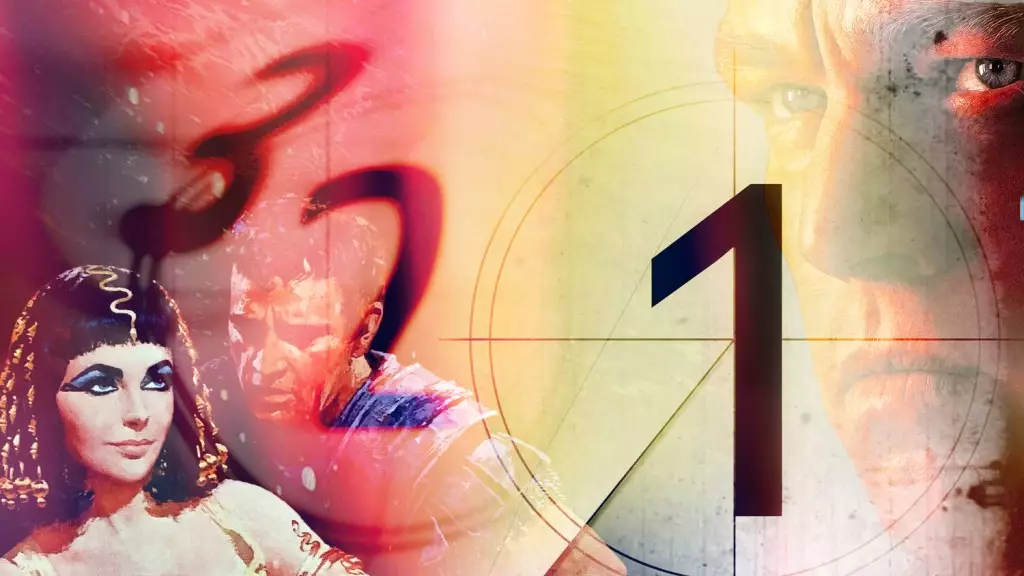Throughout my years in the filmmaking industry, I have witnessed numerous heated debates and arguments among filmmakers. Interestingly, the most intense fights were not centered around budget constraints or casting choices; they were about the length of the films. A recent screening of Martin Scorsese’s Killers of the Flower Moon reminded me of these confrontations, as it captivated audiences for a staggering duration of 3 hours and 26 minutes. Comparatively, it is an hour longer than Ridley Scott’s upcoming epic, Napoleon, and half an hour longer than Oppenheimer. As someone who becomes restless when movies exceed the two-hour mark, it appears that my attention span deficiency aligns more with Gen Z than with geriatrics.
Over the years, I have drawn inspiration from various renowned filmmakers, such as Hal Ashby, who began his career as an editor. Ashby firmly believed that “films should tell their story and move on,” a principle I personally adhered to during my collaborations with him on Harold & Maude and Being There. Consequently, my impatience with excessive movie lengths became evident during the screening of Sleep in 2013, which lasted a staggering eight hours. While I have also had disagreements with Clint Eastwood about the brevity of some of his films, I recognize the directorial conviction behind his preference for concise storytelling. Eastwood often felt that his first take was the best, reflecting his decisive approach to filmmaking. Conversely, Scorsese, who began his career as a writer, admitted feeling suicidal when he saw Mean Streets cut to a mere 45 minutes for television broadcast.
It is intriguing how decisions regarding a film’s length often appear to prioritize aspiration over artistry. Studios frequently believe that a film’s importance can be established through its running time, a sentiment Steven Spielberg shared when it came to Schindler’s List (a runtime of 3 hours and 17 minutes) and James Cameron echoed with Titanic (3 hours and 14 minutes). However, the excessive 4 hours and 8 minutes of Cleopatra, released in 1963, demonstrated that elongated lengths do not always translate to reverence. Instead, the film received ridicule from audiences. Interestingly, the desire for brevity in some well-known films stemmed from financial limitations rather than artistic intent. Mike Nichols’ The Graduate, for example, had to conclude abruptly due to budgetary constraints. A similar fate befell A New Leaf, directed by Elaine May, who decided to embark on a legal battle rather than meet the studio’s demands for a shorter cut. Unfortunately, the film’s funding ceased to exist.
On rare occasions, filmmakers find themselves in the midst of a battle to preserve their artistic vision. Such was the case with The Godfather, when the studio’s distribution chief insisted on a 20-minute cut before releasing the film. Francis Coppola vehemently opposed the demand, resulting in a three-month delay of the film’s premiere. Fortunately, Coppola emerged as the victor in this struggle.
Embracing Brevity
Aside from The Godfather, my personal inclination tends to lean toward brevity in these debates. In fact, I believe that this very article should have concluded at least two paragraphs ago. Perhaps, brevity is an undervalued power in the field of writing, just as it is in filmmaking. The ability to convey a story effectively within a concise timeframe requires a mastery of storytelling techniques. It forces filmmakers to be selective, leaving a profound impact on audiences without succumbing to unnecessary length. Though there are exceptions where longer runtimes serve a purpose, it is essential not to overlook the potency of economy in filmmaking.
The ongoing battle between length and storytelling in filmmaking continues to be a thought-provoking subject. Filmmakers must carefully consider the balance between holding the audience’s attention and conveying a compelling narrative. Whether it involves trimming a film for financial reasons or defending artistic integrity, the decision to embrace brevity ultimately rests in the hands of the creators.

